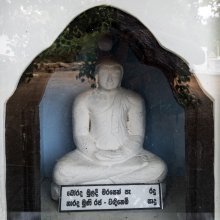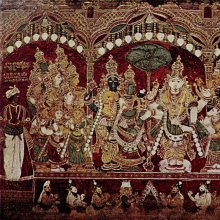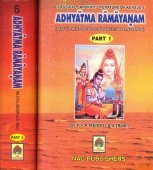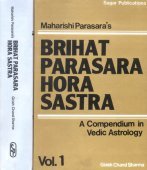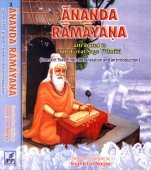Narada, Nārada, Nāradā: 33 definitions
Introduction:
Narada means something in Buddhism, Pali, Hinduism, Sanskrit, Jainism, Prakrit, Marathi, Hindi. If you want to know the exact meaning, history, etymology or English translation of this term then check out the descriptions on this page. Add your comment or reference to a book if you want to contribute to this summary article.
Alternative spellings of this word include Narad.
Images (photo gallery)
In Hinduism
Shaktism (Shakta philosophy)
Source: Wisdom Library: Śrīmad Devī BhāgavatamNārada (नारद):—One of the mind-born sons of Brahmā, according to the Devī-bhāgavata-purāṇa (chapter on the Devī-yajña). They were created by the sheer power of mind.

Shakta (शाक्त, śākta) or Shaktism (śāktism) represents a tradition of Hinduism where the Goddess (Devi) is revered and worshipped. Shakta literature includes a range of scriptures, including various Agamas and Tantras, although its roots may be traced back to the Vedas.
Ayurveda (science of life)
Source: Academia.edu: The Nepalese version of the SuśrutasaṃhitāNārada (नारद) is first of all known to us in the medical context as a participant of the meeting of Great Seers, which came together in the Himālayas in order to find a solution for the problem of multiplying diseases creating impediments to all kinds of activities of living beings. A description of this event is found in the first chapter of Caraka-saṃhitā (Sūtrasthāna 1.6ff).

Āyurveda (आयुर्वेद, ayurveda) is a branch of Indian science dealing with medicine, herbalism, taxology, anatomy, surgery, alchemy and related topics. Traditional practice of Āyurveda in ancient India dates back to at least the first millenium BC. Literature is commonly written in Sanskrit using various poetic metres.
Purana and Itihasa (epic history)
Source: archive.org: Puranic Encyclopedia1) Nārada (नारद).—A very famous sage of the Purāṇas. Birth. Nārada was the son of Brahmā, born from his lap. Brahmā mentally created the famous saptarṣis, Marīci, Aṅgiras, Atri, Pulastya, Vasiṣṭha, Pulaha and Kratu. From Brahmā’s anger was born Rudra, from his lap Nārada, from his right thumb Dakṣa, from his mind Sanaka and others and from his left thumb a daughter called Vīraṇī. Dakṣa wedded Vīraṇī. (Devī Bhāgavata, 5th Skandha). (See full article at Story of Nārada from the Puranic encyclopaedia by Vettam Mani)
2) Nārada (नारद).—One of the Brahmavādī sons of Viśvāmitra (Anuśāsana Parva, Chapter 4, Verse 53).
Source: archive.org: Shiva Purana - English Translation1) Nārada (नारद) was created as a Sādhaka (aspirant) by Brahmā out of his lap (utsaṅga), according to the Śivapurāṇa 2.1.16:—“[...] I [viz., Brahmā] created many other things as well, but O sage, I was not satisfied. Then O sage, I meditated on Śiva and his consort Ambā and created aspirants (sādhakas). [...] I then created you [viz., Nārada] from my lap (utsaṅga), [...] O foremost among sages, creating thus, thanks to the favour of Mahādeva, these excellent Sādhakas (e.g., Nārada) I became contented. Then, O dear one, Dharma, born out of my conception assumed the form of Manu at my bidding and was engaged in activity by the aspirants”.
Note: Nārada is one of the ten mind-born sons of Brahmā having sprung from his thigh. He is celebrated as a divine sage and is associated with another sage Parvata. He is represented as the messenger from the Gods to men and vice versa and as being very fond of promoting discords among Gods and men; hence he is called Kalipriya.
2) Nārada (नारद) is the name of a Mountain, according to the Śivapurāṇa 2.3.37 (“The letter of betrothal is dispatched”).—Accordingly, as Himavat prepared the wedding of Menā and Śiva: “[...] The mountains Trikūṭa, Citrakūṭa, Veṅkaṭa, Śrīgiri, Gokāmukha and Nārada came also. The excellent mountain Vindhya possessing many riches, came there delightedly along with his wife and sons. The mountain Kālañjara, highly resplendent and extremely delighted came along with his attendants. [...]”.
Source: Cologne Digital Sanskrit Dictionaries: The Purana Index1a) Nārada (नारद).—The beloved tenth son of Brahmā, born of his lap; one of the twelve, who knew the dharma ordained by Hari; a celibate; an attendant of Hari; was taught the bhāgavata by the father; and he gave it in his turn to Vyāsa; guru of Viśoka (s.v.) author of sātvatatantra; worshipped Nārāyaṇa in Bhāratavarṣa by following the course of Sānkhya and yoga; did not comprehend Hari's māyā; faith in Kriyayoga which he expounded; in previous births, he was a Gandharva by name Upabarhaṇa and a son of a dāsi.1 A devaṛṣi holding the vīṇā in his hand; called on Vyāsa and complimented him on having produced the bhārata and asked him why he looked uneasy; when he admitted his inability to explain the cause, the sage treated him to a discourse on devotion to Hari and incidentally gave an account of his own past; how in a previous birth he was a son of a servant-maid in the service of seers and Brahmanas, how he was brought up by the latter with affection, how their association helped him to cultivate devotion to Lord, how after their departure he wandered aimlessly with his mother who soon died, how he was sitting in the forest meditating on the Lord when He appeared in his mind; in a later Kalpa he was born of Brahmā as Nārada;2 advised Haryaśvās on the path of ‘not returning’ (anivartana) which they adopted; with his mind set on Īśvara-Brahman he advised again their brothers Śabalāśvās in the same way and they followed it too; for so advising his sons, he was cursed by Dakṣa to be always a wanderer with no settled home;3 accompanied Angiras to the court of Citraketu lamenting his child's death; instructed him in mantropaniṣad to realise the presence of Saṅkarṣaṇa; showed the king and his relations the jīva of the dead child but pointing how the ātman alone is eternal; the text of the vidyā imparted to Citraketu; went back to Angiras in Brahmaloka; could not find fault with Hara for violating Brahmaloka dharma; told Śuka the story of Citraketu; could not comprehend the Great Being;4 could not comprehend Hari's māyā;5 cursed Nalakūbera and Maṇigrīva, sons of Kubera, for their intoxicated pride; his view on the merits of poverty as contrasted with wealth; went to Nara-Nārāyaṇa's abode after cursing Kubera's sons.6
- 1) Bhāgavata-purāṇa I. 4. 32-33; II. 9. 40-44; III. 12. 22-3; IV. 8. 15; 13. 3-4; V. 19. 10-15; VI. 3. 20; 4. 39; VII. 1. 5; 11. 3; 15. 69-73; X. 1. 61 [1], 64; 39. 54; 90. 34 [1]; XI. 27. 2; XII. 4. 41; 13. 19; Matsya-purāṇa 3. 8; Vāyu-purāṇa 1. 130; 65. 135, 142; Brahmāṇḍa-purāṇa I. 1. 111; Matsya-purāṇa 5. 5-11; Vāyu-purāṇa 65. 139, 146-50, 156.
- 2) Bhāgavata-purāṇa I. chh. 5 and 6; Vāyu-purāṇa 52. 3.
- 3) Bhāgavata-purāṇa VI. 5 (whole); Viṣṇu-purāṇa V. 1. 67; 15. 3.
- 4) Bhāgavata-purāṇa VI. 14. 9-61; chh. 15, 16 and 17.
- 5) Ib. IX. 4. 57.
- 6) Ib. X. 9. 23; 10. 8-18, 23.
1b) A Mauneya Gandharva presiding over the month of Mādhava.*
- * Bhāgavata-purāṇa XII. 11. 34; Brahmāṇḍa-purāṇa III. 7. 4; Vāyu-purāṇa 30. 86; 69. 3; Viṣṇu-purāṇa II. 10. 5.
1c) A mountain on the base of Meru.*
- * Bhāgavata-purāṇa V. 16. 26; Brahmāṇḍa-purāṇa II. 18. 77.
1d) A mountain in Plakṣadvīpa; a citadel in itself; Here were born Nārada and Parvata.*
- * Brahmāṇḍa-purāṇa II. 19. 9; Vāyu-purāṇa 49. 8; Viṣṇu-purāṇa II. 4. 7.
1e) A mountain that entered the sea for fear of Indra; of Śākadvīpa.*
- * Matsya-purāṇa 121. 74; 122. 11; Vāyu-purāṇa 47. 74.
1f) An author on architecture.*
- * Matsya-purāṇa 252. 2.
1g) A son of Kaśyapa;1 gave his sister Arundhatī to Vasiṣṭha and was cursed by Dakṣa.2
- 1) Vāyu-purāṇa 61. 85; 86. 48; 94. 19; 105. 2; 108. 1 and 41; 110. 1 and 61. 111. 23, 38 and 57; 112. 27.
- 2) Ib. 70. 79.
1h) A son of Prajāpati.*
- * Vāyu-purāṇa 69. 64.
2) Nāradā (नारदा).—A śakti.*
- * Brahmāṇḍa-purāṇa IV. 44. 91.
Nārada (नारद) is a name mentioned in the Mahābhārata (cf. I.48.8, I.53, I.59.43, I.65) and represents one of the many proper names used for people and places. Note: The Mahābhārata (mentioning Nārada) is a Sanskrit epic poem consisting of 100,000 ślokas (metrical verses) and is over 2000 years old.

The Purana (पुराण, purāṇas) refers to Sanskrit literature preserving ancient India’s vast cultural history, including historical legends, religious ceremonies, various arts and sciences. The eighteen mahapuranas total over 400,000 shlokas (metrical couplets) and date to at least several centuries BCE.
Natyashastra (theatrics and dramaturgy)
Source: Wisdom Library: Nāṭya-śāstraNārada (नारद) is the name of a sage who was in the company of Bharata when he recited the Nāṭyaveda them, according to the Nāṭyaśāstra chapter 35. Accordingly, they asked the following questions, “O the best Brahmin (lit. the bull of the twice-born), tell us about the character of the god who appears in the Preliminaries (pūrvaraṅga). Why is the sound [of musical instruments] applied there? What purpose does it serve when applied? What god is pleased with this, and what does he do on being pleased? Why does the Director being himself clean, perform ablution again on the stage? How, O sir, the drama has come (lit. dropped) down to the earth from heaven? Why have your descendants come to be known as Śūdras?”.

Natyashastra (नाट्यशास्त्र, nāṭyaśāstra) refers to both the ancient Indian tradition (shastra) of performing arts, (natya—theatrics, drama, dance, music), as well as the name of a Sanskrit work dealing with these subjects. It also teaches the rules for composing Dramatic plays (nataka), construction and performance of Theater, and Poetic works (kavya).
Vaishnavism (Vaishava dharma)
Source: Pure Bhakti: Bhagavad-gita (4th edition)Nārada (नारद) refers to “(See Devarṣi Nārada)”. (cf. Glossary page from Śrīmad-Bhagavad-Gītā).
Source: Pure Bhakti: Brhad BhagavatamrtamNārada (नारद) refers to:—Great sage among the demigods who was born from the mind of Brahmā. He is a liberated associate of Śrī Kṛṣṇa, who travels throughout the material and spiritual worlds broadcasting His glories. (cf. Glossary page from Śrī Bṛhad-bhāgavatāmṛta).

Vaishnava (वैष्णव, vaiṣṇava) or vaishnavism (vaiṣṇavism) represents a tradition of Hinduism worshipping Vishnu as the supreme Lord. Similar to the Shaktism and Shaivism traditions, Vaishnavism also developed as an individual movement, famous for its exposition of the dashavatara (‘ten avatars of Vishnu’).
Vedanta (school of philosophy)
Source: Shodhganga: Siva Gita A Critical StudyNārada (नारद) or Nāradagītā refers to one of the sixty-four Gītās commonly referred to in Hindu scriptures.—Gītā is the name given to certain sacred writings in verse (often in the form of a dialogue) which are devoted to the exposition of particular religious and theosophical doctrines. Most of these Gītās [i.e., Nārada-gītā] originate from the Mahābhārata or the various Purāṇas.

Vedanta (वेदान्त, vedānta) refers to a school of orthodox Hindu philosophy (astika), drawing its subject-matter from the Upanishads. There are a number of sub-schools of Vedanta, however all of them expound on the basic teaching of the ultimate reality (brahman) and liberation (moksha) of the individual soul (atman).
Vastushastra (architecture)
Source: archive.org: Bharatiya vastu-sastraNārada (नारद) is the name of an ancient teacher (ācārya) of Vāstuśāsta (science of architecture) according to the Matsyapurāṇa.—All these great teachers cannot be said to be legendary. Some used to be propagated in ancient India. No nation can flourish without its care for its material prosperity. All this technique and training and their systematic and successful teaching and transmission were of equal importance. Most of the treatises of Vāstuśāstra carry many of these names [i.e., Nārada], yet a good many of them are quoted as authorities, yet still others are honoured with actual passages being quoted from their works.

Vastushastra (वास्तुशास्त्र, vāstuśāstra) refers to the ancient Indian science (shastra) of architecture (vastu), dealing with topics such architecture, sculpture, town-building, fort building and various other constructions. Vastu also deals with the philosophy of the architectural relation with the cosmic universe.
General definition (in Hinduism)
Source: Google Books: A Companion to Sanskrit LiteratureNārada (नारद).—An authoritative writer on Smṛti, who is supposed to have flourished between 100 and 300 A.D. His work on Vyavahāra exists in two versions, one longer and the other shorter. Date uncertain. Appears to have been later than Yājñavalkya. To a Nārada is ascribed also the works on music called Saṅgītamakaranda, Nāradaśikṣā, Pañcamasārasaṃhitā and Rāganirūpaṇa.
Source: Apam Napat: Indian MythologyNarada is one of the Manasaputra's (wish-born-sons) of Brahma. He has taken a vow of celibacy and wanders around, spreading the divine name of Vishnu everywhere. He is fond of mischief, and appears in many stories, starting conflict by spreading rumors.
He is one of the greatest devotees of Vishnu. He had believed himself to be above Maya (illusion), but was once tricked by Vishnu in his incarnation as Krishna, into entering married life and having a large family. (Of course all this was merely an illusion, created by Krishna, to teach Narada that no one is above Maya.)
He is always depicted as carrying a Tampura (a stringed instrument) in his hands, with a garland of flowers about his neck and the divine name of Vishnu "Om Namo Naraayana" on his lips.
Source: WikiPedia: HinduismNārada (नारद): Narada is the Hindu divine sage, who is an enduring chanter of the names Hari and Narayana which other names for Vishnu, considered to be the supreme God by Vaishnavites and many other Hindus. He is regarded the Manasputra of Brahma as he was born of his thoughts. He is regarded as the Triloka sanchaari, the ultimate nomad, who roams the three lokas of Swargaloka, Mrityuloka and Patalloka to find out about the life and welfare of people.
In Buddhism
Theravada (major branch of Buddhism)
Source: Pali Kanon: Pali Proper Names1. Narada Buddha
The ninth of the twenty four Buddhas,
he was born in the Dhananjaya park at Dhannavati, his father being king Sudeva and his mother Anoma. For nine thousand years he lived as a layman in three palaces: Jita, Vijjta and Abhirama (BuA. calls them Vijita, Vijitavi and Jitabhirama). His wife was Jitasena (v.l. Vijitasena), and his son Nanduttara. He made his Renunciation on foot accompanied by his retinue. He practised austerities for only seven days, then, having accepted a meal of milk rice from his wife, he sat at the foot of a mahasona tree, on grass given by the parkkeeper Sudassana. His first sermon was preached in the Dhananjaya Park. His body was eighty eight cubits high, and his aura always spread round him to a distance of one league. He died at the age of ninety thousand years in Sudassana, and his thupa was four leagues high. Bhaddasala and Jjtamitta were his chief monks and Uttara and Phagguna his chief nuns. Vasettha was his personal attendant, and chief among his patrons were Uggarinda and Vasabha, and Indavari and Candi. Among his converts were the Naga kings Mahadona and Veracona.The Bodhisatta was a Jatila in Himava, and the Buddha, with his followers, visited his hermitage, where they were fed for seven days and received gifts of red sandalwood. Bu.x.1ff.; BuA.151ff.; J.i.35f.
2. NaradaThe personal attendant of Sujata Buddha. Bu.xiii.25.
3. NaradaA Brahmin in the time of Padumuttara Buddha, who praised the Buddha in three stanzas. He was a former birth of Nagita (or Atthasandassaka) Thera. ThagA.i.180; Ap.i.168.
4. NaradaA brahmin in the time of Atthadassi Buddha, a former birth of Pavittha (or Ekadamsaniya) Thera. He was also called Kesava. ThagA.i.185; Ap.i.168f.
5. NaradaMinister of Brahmadatta, king of Benares. He was entrusted with escorting the ascetic Kesava, when lie fell ill, to Kappas hermitage in Himava. Narada is identified with Sariputta. For details see the Kesava Jataka. J.iii.143ff., 362; DhA.i.344.
6. NaradaA sage, younger brother of Kaladevala and pupil of Jotipala (Sarabhanga). He lived in the Majjhimapadesa in Aranjaragiri. He became enamoured of a courtesan, and was saved only through the intervention of Sarabhanga. For details see the Indriya Jataka. J.iii.463ff.; v.133f.
7. NaradaAn ascetic, son of the ascetic Kassapa. He was tempted by a maiden fleeing from brigands, but his father came to his rescue. For details see the Culla Narada Jataka. J.iv.220ff.
8. NaradaKing of Mithila, seventh in direct descent from Sadhina. He is identified with Ananda. For details see the Sadhina Jataka. J.iv.355ff.
9. NaradaA brahmin sage, called a devabrahmana, and Naradadeva.
Theravāda is a major branch of Buddhism having the the Pali canon (tipitaka) as their canonical literature, which includes the vinaya-pitaka (monastic rules), the sutta-pitaka (Buddhist sermons) and the abhidhamma-pitaka (philosophy and psychology).
In Jainism
General definition (in Jainism)
Source: Wisdom Library: JainismNārada (नारद) is the name of a gandharva god according to both the Digambara and the Śvetāmbara traditions. The gandharvas refer to a category of vyantaras gods which represents one of the four classes of celestial beings (devas). The gandharvas have a golden appearance according to the Digambaras and the Tumbaru tree is their caitya-vṛkṣa (sacred-tree). They have a blackish complexion and are beautiful in appearance, have excellent physiognomy, sweet voices and are adorned with crowns and neckalces according to the Śvetāmbaras.
The deities such as Nārada are defined in ancient Jain cosmological texts such as the Saṃgrahaṇīratna in the Śvetāmbara tradition or the Tiloyapaṇṇati by Yativṛṣabha (5th century) in the Digambara tradition.
Source: archive.org: TrisastisalakapurusacaritraNārada (नारद) refers to the Ṛṣi who first taught music, as mentioned in chapter 1.5 [ādīśvara-caritra] of Hemacandra’s 11th century Triṣaṣṭiśalākāpuruṣacaritra: an ancient Sanskrit epic poem narrating the history and legends of sixty-three illustrious persons in Jainism. Accordingly:—“[...] Bards, excited by battle, joyful as if on a festival-day, wandered unconfused to every elephant, every chariot, and every horse, recalling the adventures of men of former times, as if they had been seen at that time; praising the fruit of steadfastness in battle, like Vyāsa; celebrating again and again zealously the adversaries present, to inflame the warriors, like the sage Nārada”.

Jainism is an Indian religion of Dharma whose doctrine revolves around harmlessness (ahimsa) towards every living being. The two major branches (Digambara and Svetambara) of Jainism stimulate self-control (or, shramana, ‘self-reliance’) and spiritual development through a path of peace for the soul to progess to the ultimate goal.
Languages of India and abroad
Pali-English dictionary
Source: Sutta: The Pali Text Society's Pali-English DictionaryNarada, (nt.) (Sk. nalada, Gr. naρdos, of Semitic origin, cp. Hebr. nīrd) nard, ointment J. VI, 537. (Page 347)

Pali is the language of the Tipiṭaka, which is the sacred canon of Theravāda Buddhism and contains much of the Buddha’s speech. Closeley related to Sanskrit, both languages are used interchangeably between religions.
Marathi-English dictionary
Source: DDSA: The Molesworth Marathi and English Dictionarynaraḍa (नरड).—m A destructive disorder incidental to horned cattle.
--- OR ---
narada (नरद).—f ( P) A counter, a chessman, a man at draughts and similar games.
--- OR ---
nārada (नारद).—m (S) or nāradamuni m (S) Narad, the son of Brahma, and one of the ten original Muni or Rishi. He delighted in exciting quarrels. Hence An incendiary, embroiler, make-bate.
Source: DDSA: The Aryabhusan school dictionary, Marathi-Englishnarada (नरद).—f A counter, a chessman, a man at draughts and similar games.
--- OR ---
nārada (नारद) [or nāradamunī, or नारदमुनी].—m Narad the son of Brahma and one of the ten original Munis or Rishis. He delighted in exciting quarrels. Hence, an incen- diary, embroiler.
Marathi is an Indo-European language having over 70 million native speakers people in (predominantly) Maharashtra India. Marathi, like many other Indo-Aryan languages, evolved from early forms of Prakrit, which itself is a subset of Sanskrit, one of the most ancient languages of the world.
Sanskrit dictionary
Source: DDSA: The practical Sanskrit-English dictionaryNārada (नारद).—[narasya dharmo nāraṃ, tat dadāti dā-ka] Name of a celebrated Devarṣi (deified saint or divine sage). [He is one of the ten mind-born sons of Brahmā, being supposed to have sprung from his thigh (Manusmṛti 1. 35). He is represented as a messenger from the gods to men and vice versa and as being very fond of promoting discords among gods and men; hence his epithet of Kalipriya. He is said to have been the inventor of the lute or Vīṇā. He is also the author of a code of laws which goes by his name.]
Derivable forms: nāradaḥ (नारदः).
Source: Cologne Digital Sanskrit Dictionaries: Edgerton Buddhist Hybrid Sanskrit DictionaryNarada (नरद).—nt. (Sanskrit Gr.), a medicinal plant or a product of it, presumably = nalada, which Nobel reads with support of Tibetan: Suvarṇabhāsottamasūtra 105.3 (mss.)
--- OR ---
Nārada (नारद).—(1) occurs as the name of the well-known sage, as in Sanskrit, e.g. Mahāvastu iii.401.9; (2) in Mahāvastu ii.55.3; 63.18 given as name of the ascetic Kauśika (1), q.v., owing to a confusion of tradition (in Pali, which has the original form of the story, he is the same as Sanskrit Nārada and not = Kosika, Kosiya); (3) in Mahāvastu ii.42.19 and 43.2 (here v.l. nālada) the name seems to replace Nālaka, q.v., perhaps by corruption of tradition (but compare the form Nālada in Avadāna-śataka, also v.l. at Mahāvastu ii.43.2).
Source: Cologne Digital Sanskrit Dictionaries: Shabda-Sagara Sanskrit-English DictionaryNārada (नारद).—m.
(-daḥ) A name of Narada, born from the hip of Bramha and one of the ten divine Munis or Rishis; he is a friend of Krishna, a celebrated legislator, and inventor of the Vina or lute. He is often described as engaged in conveying messages and causing discord among gods and men. E. nāra men, and dā to give, (instruction,) ḍa affix; or nāra water, and da who gives; offering sacrifices to the manes.
Source: Cologne Digital Sanskrit Dictionaries: Benfey Sanskrit-English DictionaryNārada (नारद).—m. A Devarṣi, i. e. a celestial Ṛṣi; in epic poetry the messenger of the gods, Mahābhārata 1, 2048.
Source: Cologne Digital Sanskrit Dictionaries: Cappeller Sanskrit-English DictionaryNārada (नारद).—1. or nārada [masculine] [Name] of [several] myth. persons, [especially] of an ancient Ṛṣi often associated with Parvata, of a Gandharva, etc.
--- OR ---
Nārada (नारद).—2. [feminine] ī pertaining to Nārada.
Source: Cologne Digital Sanskrit Dictionaries: Aufrecht Catalogus Catalogorum1) Nārada (नारद) as mentioned in Aufrecht’s Catalogus Catalogorum:—See also Nāradīya.
2) Nārada (नारद):—father of Śaṅkara (Mānavaśulbasūtrabhāṣya). Bühler 539.
3) Nārada (नारद):—on music and jyotis. See Nāradasaṃhitā.
4) Nārada (नारद):—Dharmaśāstra. See Nāradasmṛti.
5) Nārada (नारद):—Laghupraśna jy.
Source: Cologne Digital Sanskrit Dictionaries: Monier-Williams Sanskrit-English Dictionary1) Narada (नरद):—[=nara-da] [from nara] a See narada.
2) b m. Name of a Brāhman, [Lalita-vistara]
3) m. or n. ([probably]) = nalada [gana] kiśarādi.
4) Nārada (नारद):—m. or nārada Name of a Ṛṣi (a Kāṇva or Kāśyapa, author of [Ṛg-veda viii, 13; ix, 104; 105; Anukramaṇikā]; as a Devarṣi often associated with Parvata and supposed to be a messenger between gods and men, [Mahābhārata; Harivaṃśa; Kāvya literature] etc.; among the 10 Prajā-patis as a son of Brahmā, [Manu-smṛti i, 35]; in later mythology he is a friend of Kṛṣṇa and is regarded as inventor of the Vinā or lute; in [Epic] poetry he is called a Deva-gandharva or a Gandharva-rāja or simply Gandharva)
5) of a son of Viśvā-mitra, [Mahābhārata]
6) of one of the 24 mythic. Buddhas, [Monier-Williams’ Buddhism 136]
7) of sub voce men, [Lalita-vistara; Hemacandra’s Pariśiṣṭaparvan]
8) of sub voce authors, [Catalogue(s)] (cf. below)
9) of a mountain, [Bhāgavata-purāṇa]
10) Nāradā (नारदा):—[from nārada] f. the root of sugar-cane, [cf. Lexicographers, esp. such as amarasiṃha, halāyudha, hemacandra, etc.]
11) Nārada (नारद):—mf(ī)n. relating to Nārada, composed by him, [Catalogue(s)]
Source: Cologne Digital Sanskrit Dictionaries: Yates Sanskrit-English DictionaryNārada (नारद):—(daḥ) 1. m. Nārada the son of Brahmā one of the 10 divine sages, a legislator, inventor of the lute, and friend of Krishna.
Source: DDSA: Paia-sadda-mahannavo; a comprehensive Prakrit Hindi dictionary (S)Nārada (नारद) in the Sanskrit language is related to the Prakrit word: Ṇāraya.
[Sanskrit to German]
Sanskrit, also spelled संस्कृतम् (saṃskṛtam), is an ancient language of India commonly seen as the grandmother of the Indo-European language family (even English!). Closely allied with Prakrit and Pali, Sanskrit is more exhaustive in both grammar and terms and has the most extensive collection of literature in the world, greatly surpassing its sister-languages Greek and Latin.
Hindi dictionary
Source: DDSA: A practical Hindi-English dictionaryNārada (नारद) [Also spelled narad]:—(nm) a celestial sage in Indian mythology (who caused internecine quarrels amongst the various gods and goddesses by tale-bearing); one who causes quarrels amongst people; also~[jī]/~[muni; nāradī kalā/vidyā] the art of causing quarrels by tale-bearing.
...
Kannada-English dictionary
Source: Alar: Kannada-English corpusNaraḍa (ನರಡ):—[noun] an unrefined, uncultured fellow.
--- OR ---
Nārada (ನಾರದ):—
1) [noun] (myth.) one of the sons of Brahma, and is a famous celestial sage, who also acts as a messenger between the gods and human beings, and is believed to have authored code of laws 'Nāradīya Smřti' considered as one of the eighteen of holy scriptures of Hindus.
2) [noun] this scripture itself.
3) [noun] that which gives water, cloud.
Kannada is a Dravidian language (as opposed to the Indo-European language family) mainly spoken in the southwestern region of India.
See also (Relevant definitions)
Partial matches: Da, Nara, Ta.
Starts with (+16): Naradabba, Naradabindupanishad, Naradadhyani, Naradagamanaparva, Naradagita, Naradakuta, Naradamuni, Naradamyasarathi, Naradanta, Naradapancaratra, Naradapancaratrasara, Naradapancaratre, Naradaparivrajakopanishad, Naradapriya, Naradapurana, Naradaputra, Naradasamgraha, Naradasamhita, Naradasamhite, Naradasana.
Ends with: Devarshinarada, Kalankinarada, Kalica Narada, Kalica-narada, Rasanarada, Senarada.
Full-text (+4184): Kalipriya, Kapivaktra, Naradiya, Devarshi, Naradika, Yathanaradabhashita, Devashruta, Vidhatribhu, Mahati, Tapasvin, Vinasya, Surarshi, Devabrahman, Kalahapriya, Naradashiksha, Upabarhaṇa, Vidhiputra, Varidasa, Naradapurana, Naradasamhite.
Relevant text
Search found 190 books and stories containing Narada, Nārada, Nāradā, Naraḍa, Nara-da, Ṇārada; (plurals include: Naradas, Nāradas, Nāradās, Naraḍas, das, Ṇāradas). You can also click to the full overview containing English textual excerpts. Below are direct links for the most relevant articles:
Garga Samhita (English) (by Danavir Goswami)
Verse 5.21.12 < [Chapter 21 - The Story of Śrī Nārada]
Verse 1.1.28 < [Chapter 1 - Description of Śrī-Kṛṣṇa’s Glories]
Verse 1.1.11 < [Chapter 1 - Description of Śrī-Kṛṣṇa’s Glories]
Brihad Bhagavatamrita (commentary) (by Śrī Śrīmad Bhaktivedānta Nārāyana Gosvāmī Mahārāja)
Verse 2.4.250 < [Chapter 4 - Vaikuṇṭha (the spiritual world)]
Verse 1.4.93 < [Chapter 4 - Bhakta (the devotee)]
Verse 1.6.9 < [Chapter 6 - Priyatama (the most beloved devotees)]
Shrimad Bhagavad-gita (by Narayana Gosvami)
Verses 10.12-13 < [Chapter 10 - Vibhūti-yoga (appreciating the opulences of the Supreme Lord)]
Verse 10.26 < [Chapter 10 - Vibhūti-yoga (appreciating the opulences of the Supreme Lord)]
Verse 2.65 < [Chapter 2 - Sāṅkhya-yoga (Yoga through distinguishing the Soul from the Body)]
Trishashti Shalaka Purusha Caritra (by Helen M. Johnson)
Part 17: Marriage with Somaśṛī < [Chapter II - Marriages of Vasudeva with maidens]
Part 7: Plan to kill Daśaratha and Janaka < [Chapter IV - The, birth, marriage, and retreat to the forest of Rāma and Lakṣmaṇa]
Part 2: Nārada’s mischief-making < [Chapter VI - Marriage of Kṛṣṇa with Rukmiṇī and others]
Bhakti-rasamrta-sindhu (by Śrīla Rūpa Gosvāmī)
Verse 2.2.8 < [Part 2 - Ecstatic Expressions (anubhāva)]
Verse 1.2.126 < [Part 2 - Devotional Service in Practice (sādhana-bhakti)]
Verse 1.1.34 < [Part 1 - Qualities of Pure Bhakti (bhagavad-bhakti-bheda)]
Related products
(+3 more products available)
